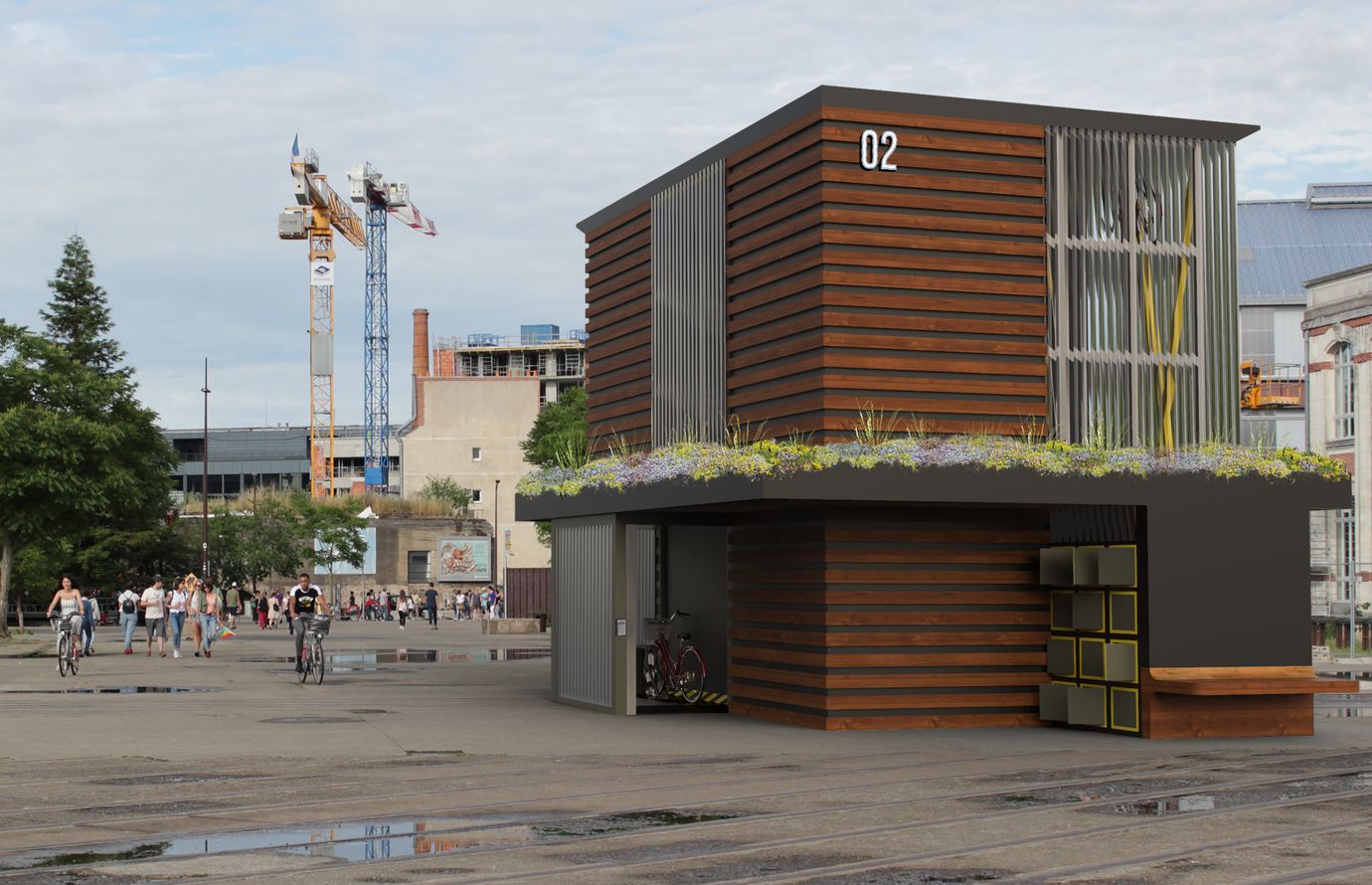La Ruche à Vélos is developing secure bicycle parking throughout France
Innovative and appropriate parking solutions must be created for the long-term development of cycling. The La Ruche à Vélos start-up incubated at IMT Atlantique offers an automated, secure and easy-to-use parking facility. This modular concept is connected to a mobile application and is intended for all users via acquisition by local authorities. For this solution, La Ruche à Vélos won the 2020 Bercy-IMT Innovation Award on February 2nd.
In 2020, many French people got back on their bikes. In its annual report published last October, the Vélo & Territoires association reported an average increase in bicycle use of 9% between January and September 2020 (compared to 2019) [1]. In a year strongly marked by strikes and the health crisis, exceptional circumstances strongly supported this trend. The attraction for bicycles shows no signs of slowing down. While local authorities support these practices, they also raise new issues in terms of security and parking. How many cyclists have already found their bike without a saddle, without a wheel, or perhaps not found their bike at all? To meet these challenges, the start-up La Ruche à Vélos, incubated at IMT Atlantique, proposes an innovative secure bicycle storage solution.
Automatic and secure parking
The increase in the number of cyclists is due in part to the emergence of electric bicycles. These bikes are heavier, bulkier and require a significant financial investment by their users. They therefore pose new constraints and require more security when parking. La Ruche à Vélos has developed a product that meets these expectations. Their solution consists of a secure bicycle parking facility which is connected to a mobile application. Its three founders were particularly attached to its ease of use. “It takes between 20 and 30 seconds to drop off or pick up a bike,” says Antoine Cochou, co-creator of the start-up. But how does it work?
The application allows the user to geolocate a parking facility with available spaces and to reserve one in advance. After identifying themselves on site, cyclists have access to a chamber, and deposit their bike on a platform before validating. There are also compartments available allowing users to recharge their batteries. Inside the parking facility, a machine stores the bike automatically. The facility covers several floors, thus saving ground space and facilitating integration of the system into the urban landscape. It can hold about 50 bikes over 24 square meters, dividing the bicycle parking space otherwise required on sidewalks by four! In addition, the size of the parking facility is flexible. The number of spaces therefore varies according to the order.
In June 2021, a first prototype of about ten spaces will be installed in the city of Angers. The young innovators hope to collect enough feedback from users to improve their next product. Two more facilities are planned for the year. They will have 62 to 64 spaces. “Depending on the location, a balance must be struck between user waiting time and the demand for services. These two parameters are related to the number of sites and the flow of users at peak times (train station, shops, etc.),” says Antoine Cochou.
Strategic locations with adapted subscriptions
La Ruche à Vélos is aimed directly at local authorities who can integrate this solution into their mobility program. It also targets businesses and real estate developers wishing to offer an additional service to their employees or future residents. Depending on the needs, the parking facilities could therefore be installed in different strategic locations. “Local authorities are currently focusing on railway stations and city centers, but office or residential areas are also being considered,” says Antoine Cochou. Each zone has its own target and therefore its own form of subscription. In other words, one-off parking in the city, daytime offers for offices, and evening and weekend passes for residents.
Initially, subscriptions for the prototype installed in Angers will be managed by the start-up. However, future models are expected to couple parking passes with local public transit passes. Subscriptions will thus be taken care of by the cities. The start-up will focus on maintenance support. “In this sense, our next models will be equipped with cameras and it will be possible to control them remotely,” says Maël Beyssat, co-creator of La Ruche à Vélos. Communities will have a web interface to monitor the condition and operating status of the parking facility (rate of use, breakdowns, availability, etc.)
For the future, the company is considering the installation of solar panels to offer a zero-electricity consumption solution. Finally, other locations could be considered outside of popular touring sites on cycle routes.
[1] Result obtained with the help of sensors measuring the number of bikes going past.
By Anaïs Culot

